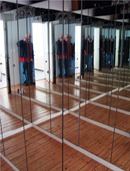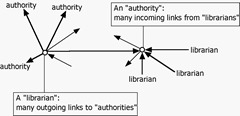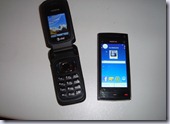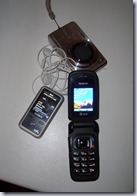Hyperreality syndrome

A few weeks ago I went looking for a thread of modern philosophy and landed, fittingly, on postmodernism (Po-Mo). The ideas are fascinating, skeptical and questioning: it’s a provocative perspective. I particularly like the idea of “hyperreality”: the inability of consciousness to distinguish reality from fantasy.
The idea is best illustrated by the Disney parks, filled with themed exhibits designed to echo other times and places. “"The beauty of Holland and the crisp Dutch costumes of its people are admired by guests cruising the seven seaways of 'It's a Small World' ” (Ref) People see  the wooden shoes and windmills set in a sea of Delft-blue tulips that they expect of the Netherlands, recognizably and uniquely Dutch.
the wooden shoes and windmills set in a sea of Delft-blue tulips that they expect of the Netherlands, recognizably and uniquely Dutch.
But postmodernists hold that there’s actually a circular reinforcement occurring. When people see what they expect, then they further believe their preconceptions: at its limit, the simulation becomes reality.
Umberto Eco, in his very readable essay”Travels in Hyperreality” argues that this kind of model serves as “An Absolute Fake”. Whereas fantasy or virtual reality is an escape where the participant acknowledges that he’s left the real world, the hyperreal becomes natural truth for people, vivid belief in something that, in fact, never existed.
It’s a seductive part of our culture. But is it a good thing?
Belk (1996) suggests that the uncritical acceptance of compelling simulations leads to three main problems.
- They filter and tailor people’s perceptions, reinforcing comfortable stereotypes and superficial prejudices.
- They minimize real cultural differences, fostering unrealistic expectations and hindering communication.
- They make the complex world seem more uniform and rational, giving the illusion of predictability and efficiency.
I’d argue that they are also efficient vehicles for political and commercial messaging and persuasion.
But it can all be good fun too. They provide a plastic framework to hold up against reality to provide context and contrast while traveling. They are a useful point of reference when describing unfamiliar places to people who’ve never visited there. It’s a simple shared illusion to adopt during Carnivale.
The trick, or course, is to  know the difference and not to lose touch with reality when tempted by the simulacrum. And the best way to do that, of course, is by substituting real experiences: travel and, well, expatriate living.
know the difference and not to lose touch with reality when tempted by the simulacrum. And the best way to do that, of course, is by substituting real experiences: travel and, well, expatriate living.
Actually, for me, the true “hyper” in my reality is the flow of new events and ideas that have to be assimilated every day I live in a new culture.
Labels: Other literature, Philosophical musings

 And then there was a link to the horribly over-the-top musical video “
And then there was a link to the horribly over-the-top musical video “












